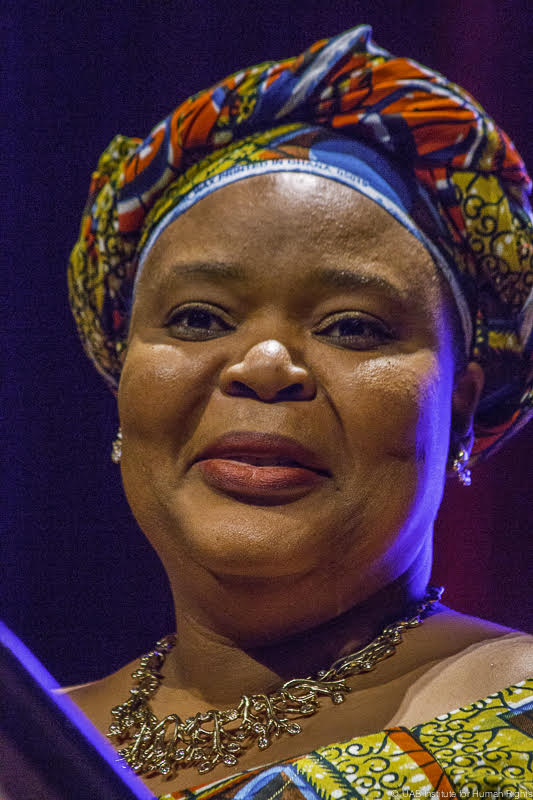 Leymah Gbowee led the Liberian Mass Action that led to the end of a 14-year civil war. Photo by Charles ColemanAjanet Rountree - Contributor
Leymah Gbowee led the Liberian Mass Action that led to the end of a 14-year civil war. Photo by Charles ColemanAjanet Rountree - Contributorarountre@uab.edu
On Thursday, Sept. 29, the Kaleidoscope had the opportunity to sit in on an interview between Leymah Gbowee and UAB’s Institute for Human Right’s intern, Ajanet Rountree.
Gbowee, who won the Nobel Peace Prize in 2011, is a Liberian peace activist, social worker and women’s rights activist, according to her biography on the Nobel Prize website. She is best known for leading a nonviolent movement that brought together Christian and Muslim women to play a pivotal role in ending Liberia’s 14-year civil war in 2003. Gbowee also recounts her experiences in her book “Mighty be Our Powers: How Sisterhood, Prayer and Sex Changed a Nation at War.”
Rountree: In your book, you talk about being a messenger for girls, telling their stories. Why is it important that the narrative of the female be brought to the front?
Gbowee: I think that there, what we’re saying about women, there’s been a lot of myths about what women can do as a result of their socialization. And over time, when you think that given all of the glass ceilings that have been broken down in terms of women’s work and what they really want to do, people will be more open to raising this new narrative of women as, you know, just, doctors, lawyers, engineers and people who can also contribute to change. It’s still a struggle, and when it comes to young women, in many societies, they are still seen as people who are not serious, they are still seen in many ways as sex objects, they’re still seen in many ways as unable to contribute and their issues are always left behind. So, my thing is, or my call is, like my Nobel sister, Jody Williams, says the Nobel Peace Prize is a big tool that you can use for good, and I have chosen to use mine for this platform as a means of elevating the role that young girls and young women play in every society. They are not daft, they are not crazy, there is a lot of competence and intellectual ability.
Rountree: What are your thoughts [on Birmingham] so far as to what you’ve seen?
Gbowee: Most times when I come to place, I’m a weird soul, I’m not looking for the beauty of the community. I appreciate the beauty but I’m also looking at some of the social issues and social problems. Let me put it this way: I was in Texas once, and a little girl asked me, “Are you amazed by all the tall buildings?” I said to her, “Look, not really at the tall buildings, but amazed at all the humans that have to sleep underneath the tall buildings.” That’s the kind of thing that tends to capture my attention. The empty lots, the empty buildings, and, so, maybe between now and the future I’ll be able to see much more.
Rountree: Have you always had that sense about you where you noticed what other people may not notice? Or did that come as a result of war?
Gbowee: I think I’ve always been that way. As a young child, I think I was very observant, could feel out different things and I would ask questions to my grandmother and mother that no other children would ask.
Rountree: How do you think that positioned you for the Liberian Mass Action? How do you think that impacted you?
Gbowee: I think one of the things that I recognized about this gift that God has given to me is that I’m able to strike the right conversation with people at the right time. And when we did the Mass Action, very important for me to connect with people in ways that make them know [me] beyond my faults, and see me as a leader. Because, predominantly or most of them, when they get in leadership position, people tend to just focus on the outward faults and it tends to override all of the leadership quality that you bring that makes the work very essential. So I was pushing back on the narrative of me as a single woman, of me as a single mother, someone who had problems with alcohol, of someone who had had multiple sexual partners or multiple relationships, and I was trying to be- let them see me as the compassionate, charismatic leader who was trying to get all of us to a place where we could change the narrative of our nation.


